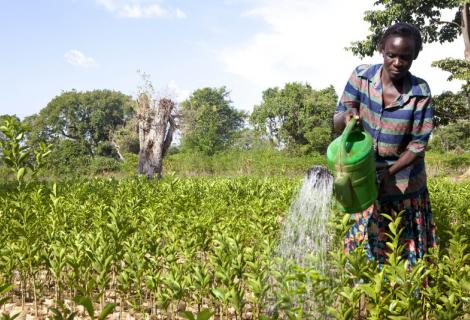
Disasters, climate change impacts and conflict affect millions of people every year. They unleash considerable misery by destroying livelihoods and causing huge and often irreversible damage to the economic, social and cultural fabric of communities and nations. Human and economic losses are set to increase in the near future as climate change impacts intensify sea-level rise, droughts and floods. Increasing violent conflict disrupts society, displaces people, destroys infrastructure and means of production, as well as terrorises and dehumanises individuals, particularly the poor and excluded.
ActionAid works with those who are poor and excluded, thus the most vulnerable to various shocks and stresses, which include earthquake, cyclone, drought, flood, epidemic, sea-level rise, deforestation, loss of biodiversity, food crisis, economic crisis, political unrest, violent conflict and so on.
ActionAid believes that the indignity of poverty is a violation of human rights, arising from unequal and unjust power relations from the household to the global level. Poverty is not just about a lack of income or a lack of material resources. It is about a lack of power to access, acquire, use or control the resource, skills and knowledge that people need to live a life of dignity. People living in poverty, especially women, have limited resources and capacities to deal with and recover from the impacts of shocks and stresses, keeping them in a vicious cycle of poverty and making them more vulnerable.
ActionAid’s analysis shows that vulnerability is primarily caused by three underlying factors:
- Social exclusion
- Lack of skills, access to basic services and economic opportunities; and
- Lack of assets and secured access to natural resources
The inter-relationship between these three underlying causes demonstrates that just belonging to a socially excluded group alone can make this group hugely vulnerable to shocks and stresses, but if that group also has a lack of skills, access to basic services and economic opportunities, then it becomes even more vulnerable. This can be compounded even further by their lack of assets and secured access to natural resources.
The underlying causes of vulnerability arise primarily from unequal and unjust power, which leads to lack of governance and unjust social attitudes. These three mutually reinforce each other. Individually or together, they deepen the institutional perpetuation of inequality and injustice.
ActionAid’s Human Rights based Approach centres around poor and excluded people, tackles the underlying causes of their vulnerability to ensure that they have assets and a secured access to natural resources have skills, access to basic services and economic opportunities. This is achieved through empowering people, working in solidarity with them and campaigning to reduce their vulnerabilities.
We would like to invite your comments on the paper. Please send your comments to
Harjeet Singh: Harjeet.singh@actionaid.org
Jessica Faleiro: Jessica.faleiro@actionaid.org